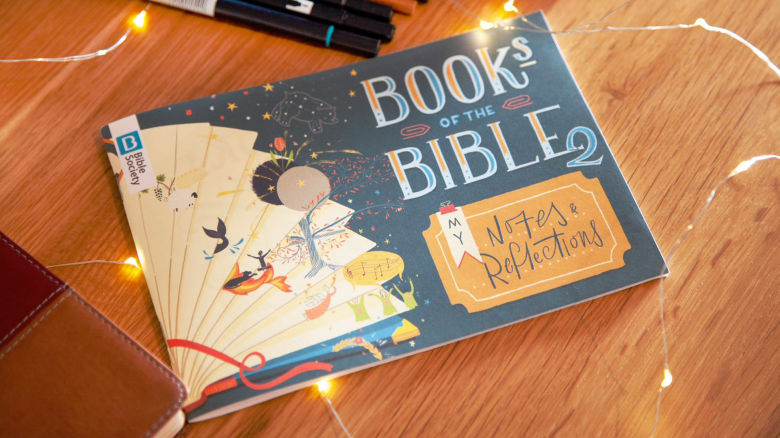The book begins with God commanding Hosea to marry an unfaithful wife. The first few chapters describe what happened when he did so. Chapter 4 onwards contains messages from God via Hosea, first to the people of Israel (4–11) and then to the people of Israel and Judah (11–14), about the anger God felt because of their betrayal of him through injustice, corruption and their worship of other gods. Woven between these messages of doom are some messages of hope, pointing to what God’s people can look forward to beyond these times of trouble.
Let us know; let us press on to know the Lord; his going out is sure as the dawn; he will come to us as the showers, as the spring rains that water the earth. (Hosea 6.3)
For I desire steadfast love and not sacrifice, the knowledge of God rather than burnt offerings. (Hosea 6.6)
When Israel was a child, I loved him, and out of Egypt I called my son. 2The more I called them, the more they went from me; they kept sacrificing to the Baals, and offering incense to idols. 3Yet it was I who taught Ephraim to walk, I took them up in my arms; but they did not know that I healed them. 4I led them with cords of human kindness, with bands of love. I was to them like those who lift infants to their cheeks. I bent down to them and fed them. (Hosea 11.1–4)
Many people find the violence in Hosea quite difficult. God says he will punish his people, violently, for breaking their covenant with him.
Hosea also appears to condone violence towards women in response to infidelity, indeed even to hold it up as the right thing to do.
It will be important to reflect on how you react to this.
The author is announced as Hosea in verses 1.1–2. He was a prophet to the northern kingdom of Israel. Hosea means 'salvation' in Hebrew, but Hosea is popularly termed ‘the prophet of doom’.
We know next to nothing about Hosea. He is not mentioned in any other book of the Old Testament; all we know about him comes from this book. What we do know from the book, however, is startlingly personal. God told him to marry ‘a wife of whoredom’ (or another similar phrase depending on your translation) which could either mean someone already engaged in extra-marital intercourse, possibly prostitution, or someone who, after marriage, would turn to such practices. Some people suggest that Gomer was a temple prostitute.
We discover that Hosea married Gomer. Together they had three children, who God declared should be called Jezreel (after an atrocity committed in valley of Jezreel by King Jehu), Lo-Ruhamah (or 'not pitied') and Lo-Ammi (or 'not my people').
The prophecies of Hosea were written some time between 750 and 722 BC, just before Israel (the northern kingdom) was destroyed by the Assyrian empire.
The second half of the eighth century BC was an unsettled time for Israel and Judah. In 745 BC Tiglath-Pileser III seized the Assyrian throne, in Nineveh, northern Iraq, in a coup. He strengthened the army and began extend Assyrian power over the Ancient Near East. The leaders of Hosea’s day seem to have coped with this by assimilating to the religious practices of Assyria. Much of Hosea’s criticism is aimed at their poor leadership – those who should have led the people to God instead lead them in the worship of other gods.
At the same time Israel, which had previously been prosperous, began to suffer economically. This led the rich to hold on to their money and ignore the needs of the poor.
The book of Hosea indicates that the people were feeling self-satisfied and confident. They were sleepwalking towards disaster and had no idea of the catastrophe that was looming.
Amos, Micah and (parts of) Isaiah
Most of Hosea is made up of prophecies from God to his people.
Where the book is unusual – though not unique – is in its symbolic prophecies. Hosea’s marriage to Gomer in Hosea 1–3 symbolises the relationship between God and his people; her infidelity is seen as Israel’s infidelity, while Hosea’s hurt and anger at this symbolises God’s hurt and anger.
1.1 Introduction
1.2–3.5 Hosea’s marriage as a metaphor for the covenant between God and his people
4.1–11.11 God’s lawsuit against Israel, ending with a prophecy of hope
11.12–14.19 God’s lawsuit against Israel and Judah ending with a prophecy of hope
There will be lots of names you will not know; don’t worry if you can’t place them all. The key ones are given below.
Ephraim, Samaria, Northern Kingdom, Israel, Judah, Southern Kingdom, Aram, Assyria, Gilgal, Judah, Lebanon, Mizpah, Mount Tabor, Ramah, Shechem, Shittim
Gomer, Jezreel, Lo-ammi, Lo-ruhamah, Benjamin, Hezekiah, Israel, Jezreel
Sheol, Baal, idols, priest, threshing floor
Notice the dual strands of love and anger that flow through the book. Reflect on how you feel about this. What is your reaction to the theme of punishment that also runs through the book?
Hosea’s message is enacted through his marriage, as well as proclaimed. What do you think of this kind of prophecy? Is it powerful or over-the-top? Notice how you feel about it as you read.
Hosea's personal story is an emblem of the relationship of God and his people. What can the complexities of human relationships tell us about the complexities of faith?
In the midst of the prophecies of doom there are a few glimmers of hope. What difference does this make to your reading of the book?
Is there any way in which you feel the book of Hosea is a message for our times? As you read ask yourself, 'If Hosea were prophesying today, what would he say?'

Here are 8 handy tips to get your book club up and running.

Here are some ideas to get you started.

7 top tips for reading the Bible
The Bible can seem overwhelming, boring and difficult, but a few basic tips can help you understand it more. Try these…
Books of the Bible journal: 2nd Edition
Journey through the Bible, one book at a time, with the 2nd edition of our Books of the Bible journal.
